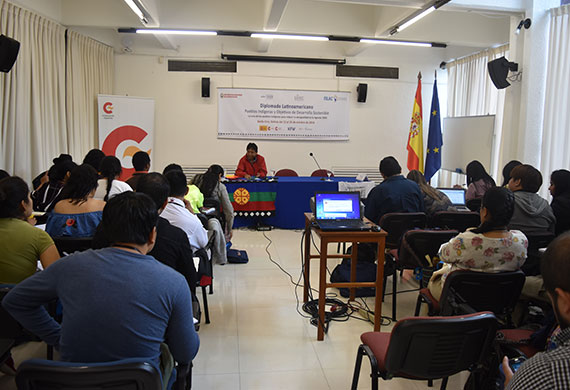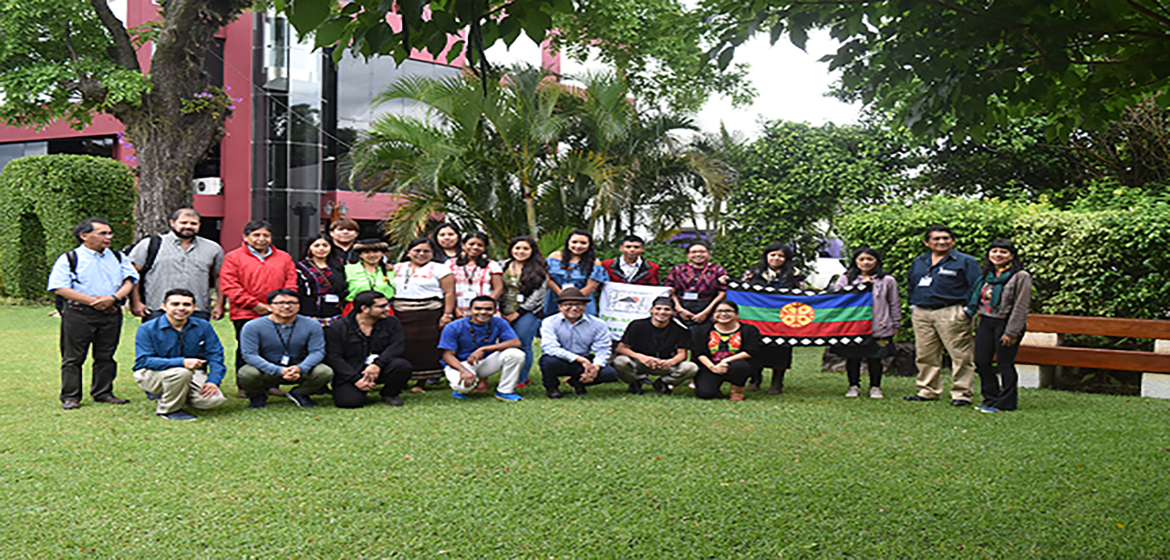Indigenous peoples have participated in relevant processes on sustainable development since the Earth Summit (Rio Conference) in 1992, advocating for the protection and fulfillment of their rights as affirmed by the United Nations Declaration on the Rights of Indigenous Peoples (UNDRIP) and ensuring their full and effective participation in the development, implementation, and review of national action plans and programs on sustainable development at all levels.

The implementation of the 2030 Agenda for Sustainable Development is critical for indigenous peoples and brings with it opportunities as well as threats to the respect, recognition and protection of their rights. As a result, the strengthening of indigenous peoples’ coordination mechanisms on the sustainable development agenda remain essential. One of these mechanisms, at the global level, is the Indigenous Peoples Major Group for Sustainable Development (IPMG) - composed of seven regional focal point organizations that form the Global Coordinating Committee, one representative of indigenous women, one representative of indigenous youth, two co-conveners and more than 50 affiliated indigenous organizations.
Based on the progress at the global level and with the intention to increase the technical capacity of young indigenous representatives of Latin America and the Caribbean in the implementation and monitoring of the Sustainable Development Goals (SDGs); the Fund for the Development of the Indigenous Peoples of Latin America and the Caribbean (FILAC), through its emblematic program “Education for Equity”, in partnership with the Intercultural Indigenous University UII, the Carlos III University of Madrid and in coordination with the Indigenous Peoples Major Group for Sustainable Development, organized the First Latin American Training of Indigenous Peoples on the Sustainable Development Goals, which took place in Santa Cruz de la Sierra, Bolivia, from October 1 through the 26.
The training was attended by 30 indigenous representatives, mostly young people from seventeen countries of Latin American and the Caribbean - all of them member countries of FILAC. The course was composed of 7 modules divided up into 420 hours, which included a virtual phase of 30 hours, six face-to-face modules of 30 hours, and 150 hours oriented to individual and collective practical work. Some of the topics discussed included the status of the implementation of the SDGs in Latin America and the Caribbean; the contributions of indigenous peoples to the theory and practice of sustainable development; indicators for the implementation and monitoring of the SDGs within the framework of the rights of indigenous peoples; SDGs and indigenous peoples; Traditional knowledge and the SDGs; Mechanisms for participation and indigenous advocacy; and in depth analysis of intercultural, gender and intergenerational perspectives. The lecturers of the course included high-level indigenous representatives and leaders, as well as United Nations representatives and FILAC specialists.
The main outcome of the course was to enhance the leadership role of participants in their organizations and communities on processes related to the follow-up and implementation of the SDGs, making sure they are able to incorporate the realities of indigenous peoples on the ground by generating their own indicators, strengthening capacities for the mobilization of financial resources, improving the use of social and technological tools and preparation of reports, and above all, incorporating the gender and intergenerational perspective in the implementation, monitoring and follow-up of each of the SDGs at all levels.
Source: FILAC
Related to all SDGs



